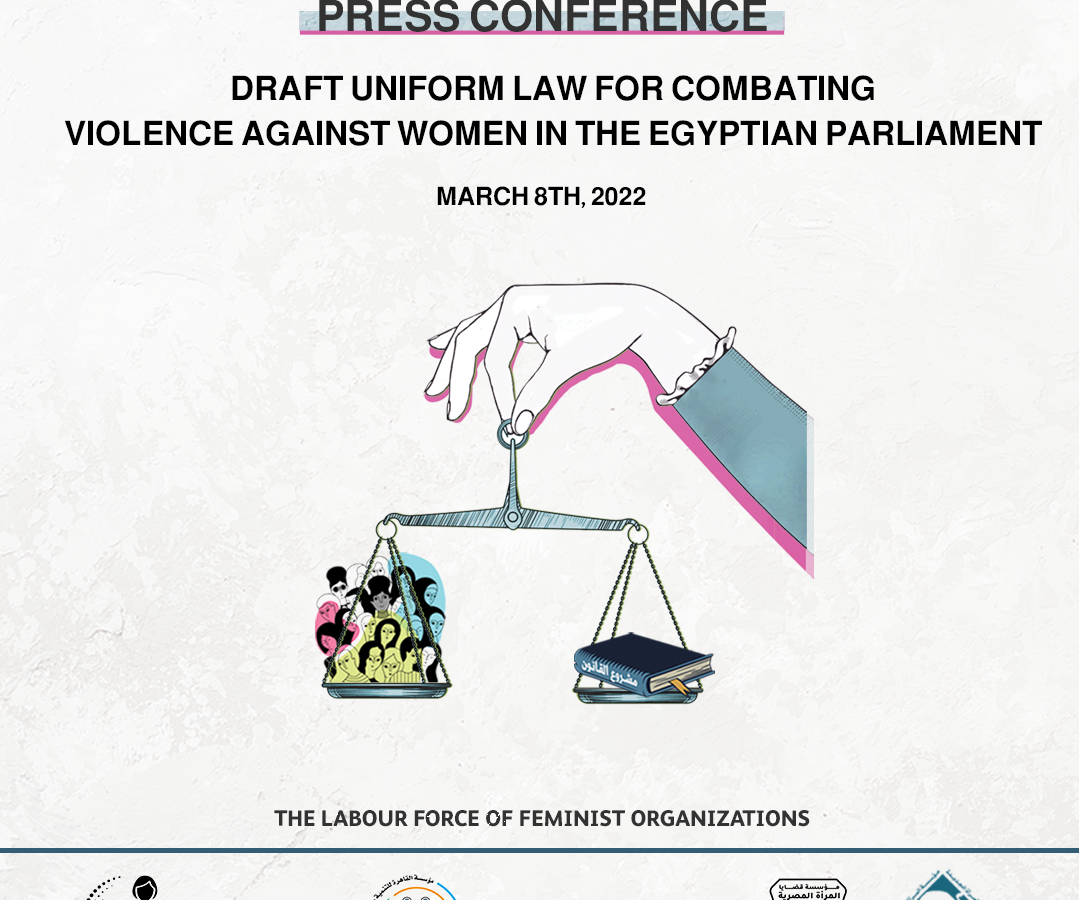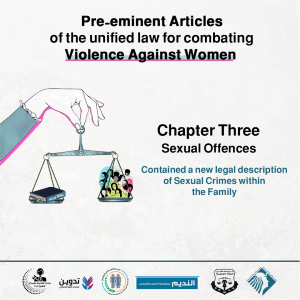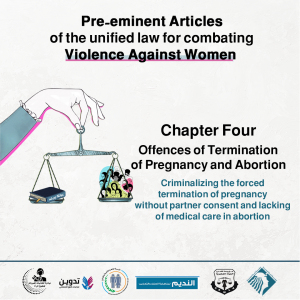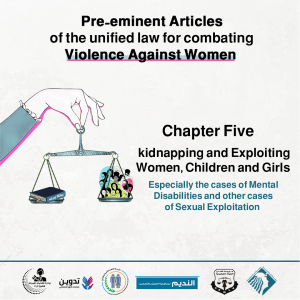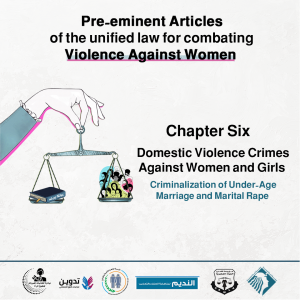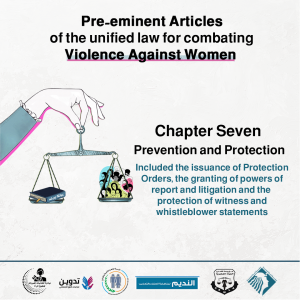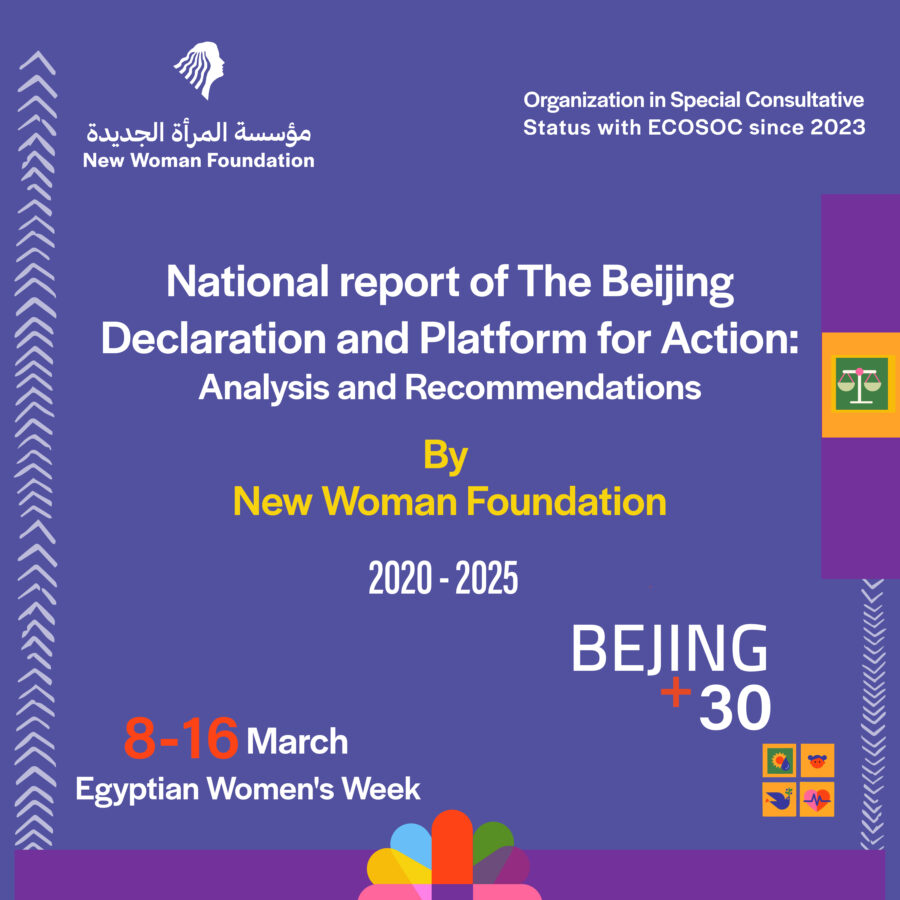- Contact Us
- 0020233382706
- nwrc@nwrcegypt.org
Draft unified law for combating violence against women in the Egyptian Parliament 2022

Press conference on a draft law for combating violence against women within parliament
March 8, 2022
Celebration of Egyptian Women’s Day and closing event of ” Against Early Marriage” project through art in the Egyptian villages
March 17, 2022
It comes in line with national strategies: the National Strategy for Combating Violence against Women, the National Strategy for the Empowerment of Women 2030 and the National Human Rights Strategy.
The labour force of feminist organizations is submitting the draft uniform law to the Egyptian Parliament at its current session in cooperation with Deputy “Nashwa El-Deeb”. It should be noted that this is the second consecutive time to propose the draft uniform law. The draft uniform law for combating violence against women has been introduced before in the previous parliament with deputy “Nadia Henry”.
The draft law consists of seven chapters, including the following:
- chapter one: definitions,
- chapter two: litigation procedures,
- chapter three: sexual offences,
- chapter four: abortion of pregnant women,
- chapter five: kidnapping and exploiting women and children,
- chapter six: domestic violence crimes against women and girls,
- chapter seven: prevention and protection.
It should be noted the main new items in each chapter for monitoring:
Chapter one: included a definition of crimes of sexual exploitation, extortion and cyber-bullying, crimes of violence against women and girls within the family; as well as, the definition of the crime of rape has been developed.
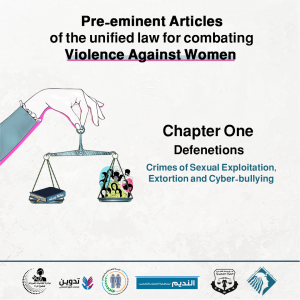
Chapter two (litigation procedures): it included provisions to expand the range of those entitled to report issues, including service providers of civil society organizations, the allocation of chambers to deal with cases of violence against women in the courts of the first instance, and decentralized judicial structures to combat violence against women at both the police and specialized courts.
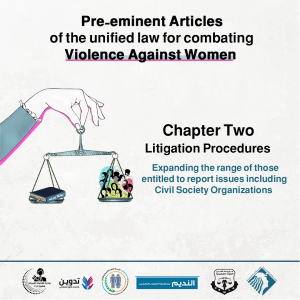
Chapter three (sexual offences): the text contained a new legal description of sexual crimes within the family, including assault, rape, extortion, cyber-extortion and coercion within the family.
Chapter four (offences of termination of pregnancy and abortion): contained several provisions criminalizing the forced termination of pregnancy without partner consent or the failure to provide the necessary medical care in cases of abortion.
Chapter five (kidnapping and exploiting women, children and girls): included everything related to kidnapping, coercion; as well as, girls and children trafficking, especially the cases of mental disabilities and other cases of sexual exploitation.
Chapter six (domestic violence crimes against women and girls): included provisions for the criminalization of forced and under-age marriage as well as marital rape.
Chapter seven (prevention and protection): included the issuance of protection orders, the granting of powers of report and litigation; as well as, the protection of witness and whistleblower statements even in multiple cases. Moreover, the chapter allocated mandatory provisions for awareness-raising and advocacy efforts and obligatory roles for education, media, culture, and arts. Also, the regularity in providing data, research and studies on the status of women, the provision of shelter services and the empowerment of civil society organizations to deliver services and legislative protection interventions.
The labour force of feminist organizations for a unified law to combat violence against women is keen to open bridges of dialogue with all concerned parties to work together to promote legislative protection for women and combat violence. We also hope that the draft uniform law will gain the support of Egyptian citizens and allow for constructive and adequate discussion in the plenary meetings and specialized committees of the Egyptian Parliament.

